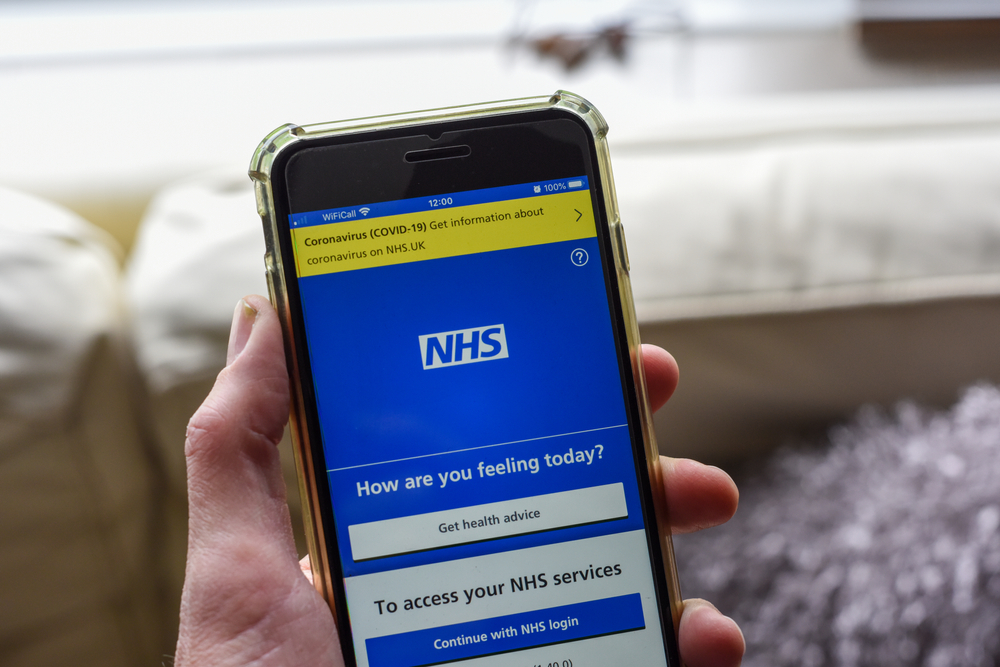Raising the bar: Why clinical standards are essential for the responsible use of tech in healthcare

Digital tools like Ambient Voice Technology are redefining primary care – but with great power comes great responsibility. Julian Coe, Managing Director at X-on Health, explains why robust clinical standards are not barriers to innovation, but the bedrock of trustworthy, scalable, and safe digital transformation in the NHS.
As primary care evolves, digital innovation offers a practical way to support clinicians and improve patient care. Digital telephony has been widely adopted but there is much that can be done to improve the utilisation of the advanced features now available, and Ambient Voice Technology (AVT) is increasingly part of this conversation – not as a distant ambition, but as a sensible step forward. With such powerful tools, however, comes the responsibility to implement them thoughtfully and ethically.
The recent NHS England letter advising primary care providers to halt the use of AVT that does not meet stringent specifications served as a clarifying moment. It makes clear to all stakeholders that while the promise of AI is strong, governance, safety, and data protection must come first. These aren’t constraints –in reality, they are the foundation of meaningful and safe innovation.
Clinical safety standards have been in place since 2012, and for good reason. Too often, they are framed as red tape but that’s a fundamental misunderstanding. Standards like DCB0160 and structured Data Protection Impact Assessments (DPIAs) are not obstacles, they are accelerators of safe and scalable innovation, and need to be embraced. As a legal requirement, they ensure management invests in making sufficient resources available, and when implemented thoughtfully, they serve as quality control systems that enhance, rather than inhibit, digital transformation.
On a wider scale, the UK is considered to have a robust and responsible regulatory system by international standards, having only recently branched away from the EU. The UK still very much mirrors EU regulations, although the direction of travel in the UK is towards clarification, a greater risk-based approach, but to remain internationally harmonised. The government vision is for the UK to be the best place to develop AI and healthtech responsibly, allowing it to be used in the UK and around the world.
With this in mind, we must remember that healthcare is not like other sectors: the cost of error is potentially high and personal, the margin for misjudgement is slim, and as a supplier, the trust we hold with clinicians is of utmost importance. In healthcare, we have to do things in an evidence-driven way, and clinical standards, therefore, must not only be met, they must be elevated.
Building trust through standards
AVT, when built on strong clinical standards, offers truly transformative potential. Designed to automate the generation of clinical notes, referral letters and administrative tasks in real time, these tools can operate during face-to-face, telephone and video consultations.
Some providers are now offering AVT tools and AI scribes that integrate seamlessly into existing practice workflows and telephony systems. For example, Surgery Intellect powered by Tortus AI will be integrated into our digital telephony system. It listens to consultations and automatically generates accurate clinical notes, referral letters, clinical coding, and administrative tasks in real-time. It’s accessible to all GP practices, regardless of a practice’s current telephony provider, through our software, ensuring that no surgery is excluded due to infrastructure constraints.
When done correctly, AVT tools don’t simply record, they understand, contextualise, and accurately summarise clinical interactions. The result is not merely increased efficiency but enhanced clinical confidence, and doctors that feel better in providing more time for their patients.
The combination of our product offerings will provide surgeries with their first comprehensive intelligent care navigation system. By integrating into the NHS App and clinical management systems, and using the latest technology including AVT and AI voice agents, we will free significant additional clinical time for every surgery.
But functionality alone is insufficient. What underpins trust in such systems is rigorous adherence to frameworks and standards, robust data protection protocols, and a governance-first approach.
Delivering a governance-informed approach
As one of the largest healthtech companies in primary care in the UK, we handle over 40 million calls every month and have a duty of care to ensure that our services meet and exceed all specifications. Many organisations are looking into AI medical scribes, but only a few are committed to achieve the highest level of clinical safety standards.
Partnerships play a critical role in ensuring these new technologies align with NHS expectations and we’ve collaborated with a select few organisations known for their governance-first approach and know that a rigorous approach to clinical safety shows how safety can be adopted into the fabric of a company’s innovation, rather than being seen as an unwelcome overhead.
In addition to our own external Clinical Safety Officer, we have also commissioned a specialist advisory firm to hold us to account, so GP practices can confidently adopt our cutting-edge AI technologies knowing they meet NHS clinical safety standards and data protection requirements. We believe safety and speed, when aligned through proper governance, can go hand-in-hand.
Beyond compliance, toward transformation
The future of AI in healthcare will be shaped not by who moves the fastest, but by who moves the safest and we are confident that our product will be the first available to primary care that will gain Class IIa medical device approval. Many AVT solutions may appear impressive in demonstrations, but only those able to meet and exceed NHS clinical safety standards will stand the test of scale and scrutiny.
Innovation without governance is a gamble. Governance without innovation is stagnation. The NHS deserves both: the boldness to embrace cutting-edge technologies and the discipline to hold them to the highest clinical and ethical standards.
As we continue to navigate this digital evolution in healthcare, clinical standards must remain our guide. Not only do they protect patients and clinicians, but they also create the conditions for the kind of sustainable, transformative innovation that primary care so urgently needs.
The future of healthcare AI doesn’t belong to those who innovate recklessly, and safety is not a one-off thing. It belongs to those who understand that true progress is governed, tested, and trusted. In the inspired words of Dr Dom Pimenta, CEO of Tortus AI, we should move as fast as we can, but as slow as we need to.
Julian Coe, Managing Director, X-on Health















